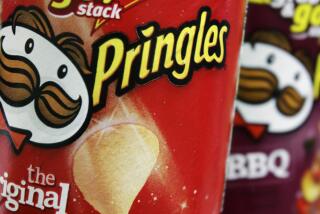EU investigates alleged sweet tax deal for McDonald’s
The European Union is investigating whether fast-food giant McDonald’s Corp. received a sweet tax deal from Luxembourg, part of a broader effort to crack down on preferential treatment for big multinationals.
EU antitrust Commissioner Margrethe Vestager said Thursday that the company’s deal with Luxembourg may have breached state-aid rules, which seek to keep a level playing field for businesses across the 28 EU states.
The EU says that since 2009, McDonald’s Europe Franchising paid no corporate tax in Luxembourg despite large profits. It said the profits were more than 250 million euros ($265 million) in 2013.
Vestager said that “a tax ruling that agrees to McDonald’s paying no tax on their European royalties either in Luxembourg or in the U.S. has to be looked at very carefully.”
In October, the EU already demanded that Starbucks and Fiat repay up to 30 million euros ($34 million) each in back taxes, in what was the start of a broad crackdown on favorable tax deals for multinationals.
Multinationals in Europe pay taxes in the country where they have their regional headquarters, and countries have long competed to lure the big companies with incentives.
That has resulted in some offering advantages that allow companies to pay very low tax overall. It has become a big political issue as citizens in many European nations are forced to tighten their belts because of the weak economy while some multinationals get away with huge tax breaks.
Both Luxembourg and McDonald’s denied any wrongdoing.
“McDonald’s complies with all tax laws and rules in Europe and pays a significant amount of corporate income tax,” the company said in a statement. It added that from 2010 to 2014 McDonald’s companies paid more than $2.1 billion in corporate taxes in the EU, with an average tax rate of almost 27%.
More to Read
Inside the business of entertainment
The Wide Shot brings you news, analysis and insights on everything from streaming wars to production — and what it all means for the future.
You may occasionally receive promotional content from the Los Angeles Times.









